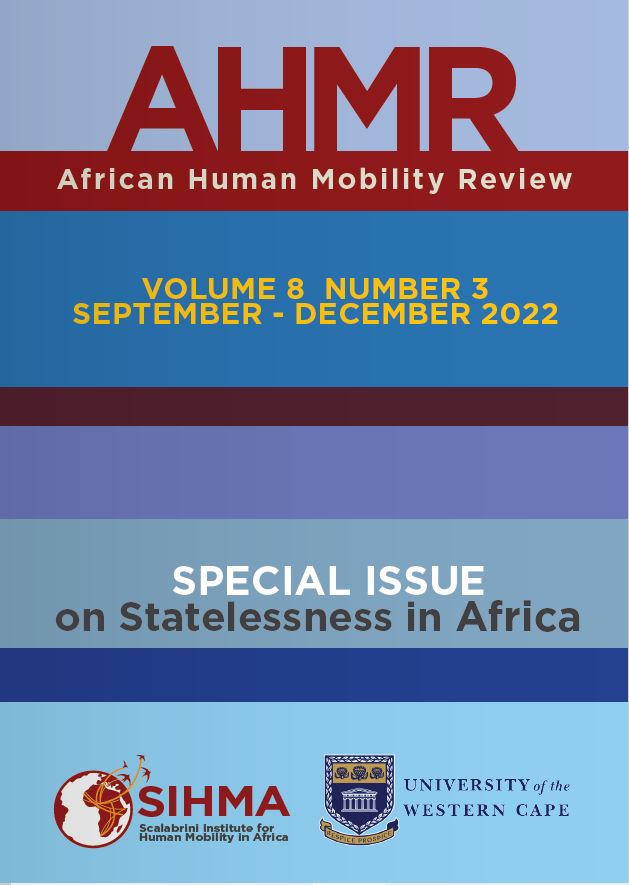Main Article Content
Statelessness in Protracted Refugee situations: Former Angolan and Rwandan Refugees in Zambia
Abstract
The risk of statelessness in protracted refugee situations has not received much attention both in academic literature and policy discussions. Yet evidence suggests that for refugees in protracted situations, the bond with their country of origin can become weak while pursuing local integration as a durable solution in the host country, leading to an increased risk of becoming stateless. This can occur depending on the requirements that refugees have to meet in order to become locally integrated in a host country especially when their refugee status ceases. These requirements largely revolve around the issue of citizenship and national identity documents. Many are unable or unwilling to acquire national identity documents from their country of origin for different reasons, including: fear of persecution by the government of their country of origin; criteria that exclude a large number of them from accessing local integration opportunities; and nationality laws that do not automatically grant citizenship by birth. In this paper, I argue that there is need to extend the definition of stateless persons to include de facto stateless persons since they are in effect stateless. This would enable them to access the necessary assistance, chief among which is the regularisation of their legal status. I base my argument on the case of former refugees from Rwanda and Angola in Zambia.





